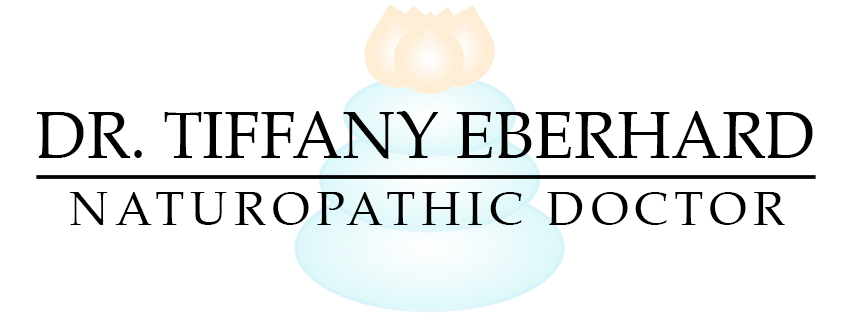Publications
1. Cervical dysplasia risk factors and natural treatment options
Cervical Dysplasia - Naturopathic and Conventional Strategies by Dr. Tiffany Eberhard, ND
Cervical dysplasia refers to abnormal cells found on the surface of the cervix, that are considered to be premalignant and can progress to cancer. Cervical dysplasia is primarily caused by a sexually transmitted infection with different strains of the human papillomavirus (HPV). However, different strains can be involved in both benign and malignant lesions; therefore, the progression of the disease appears to depend on individual factors...[Read more]
2. What is high cholesterol and can it be treated naturally?
Hypercholesterolemia - Natural Approaches by Dr. Tiffany Eberhard, ND
Cholesterol is a waxy, fat-like substance that is mainly made within the body by the liver but also comes from food. Cholesterol is important for optimal health, as it is needed to make cell walls, tissues, vitamin D, hormones, and bile acid. Atherosclerosis refers to the narrowing of the arteries due to excess cholesterol forming plaques within the arteries, which leads to compromised blood flow. This compromised blood flow can cause a heart attack and increases the risk of blood clots, which can lead to a stroke...[Read more]
3. Oral health is linked to systemic diseases and can be addressed naturally!
Periodontitis by Dr. Tiffany Eberhard, ND
Periodontitis is the result of gingivitis progressing to a more serious stage. It is characterized by swollen, reddish, and bleeding gums, as well as bad breath. Severe periodontitis affects 10–15% of adults, while moderate periodontitis affects 40–60% of adults. Despite its high prevalence, it is largely unrepresented as a chronic inflammatory disease. It has significant effects on overall health, quality of life, confidence, social interactions, and food choices...[Read more]
4. The 'leaky gut'-autoimmune disease connection - improve your gut health naturally!
Gut health and autoimmune disease by Dr. Tiffany Eberhard, ND
The immune system is able to discriminate self from non-self antigens, substances that trigger the immune system, which protects the host from infections and cancer. Autoimmune diseases are characterized by deregulated immune responses [1]. Autoimmune diseases affect 5-8% of the population in the United States and can affect almost every site in the body [2]. The disease process is either cell mediated, TH1 cells, or mediated by auto-antibodies. However, it is now known that cytokines, chemokines, adhesion molecules, and other components of inflammatory response also mediate tissue damage in autoimmune diseases...[Read more]
5. Withania: the wonderful adaptogenic herb with many uses!
Withania somnifera by Dr. Tiffany Eberhard, ND
W. somnifera, also known as Ashwagandha, is an important herb that has been used for over 3000 years. The important constituents of the root are steroidal alkaloids and steroidal lactones referred to as withanolides. It is used for anxiety, inflammation, Parkinson’s disease, cognitive and neurological disorders, and as a supportive adjunct for people undergoing radiation and chemotherapy. It is also considered an important adaptogen, an herb that helps manage the body’s response to stress, for people with nervous exhaustion, insomnia, debility due to stress, and as an immune stimulant in people with low white blood cell counts...[Read more]
6. What are urinary tract infections and how can they be prevented and treated naturally?
Urinary Tract Infections - Natural Approaches by Dr. Tiffany Eberhard, ND
Lower urinary tract infections (referred to as UTIs in this article) account for millions of doctor visits per year with the urinary tract being the second-most common site for infection [1]. The term urinary tract infection refers to the presence of a certain number of bacteria in the urine, usually more than 100 000/mL. UTIs can occur in both men and women, however, they are about fifty times more common in women than men. This is likely due to the fact that women have shorter urethras allowing bacteria to ascend more easily into the bladder [2]. UTIs affect as many as one in five women at some time during their lifetime with about 20% of these women having reoccurrence or chronic infections. The more infections one has had the higher the incidence of recurrence...[Read more]
7. What is osteoporosis and how can it be prevented and treated naturally?
Osteoporosis - Natural Approaches by Dr. Tiffany Eberhard, ND
Osteoporosis is a disease of the skeletal system characterized by deterioration of bone tissue and a reduction in bone mass [1]. Osteoporosis results from a long-term disruption of skeletal homeostasis that is secondary to nutritional, physical, genetic, endocrine, and environmental factors. Bone mass is correlated with bone strength, therefore a decrease in bone mass leads to bone fragility and an increased fracture risk. The elderly population is more prone to fracture due to their decreased bone mass, muscle strength, coordination, and proprioception. Additionally, medication- or age-related disturbances in cognition, vision, and hearing, increase the risk of fracture in this population. Osteoporosis is generally symptomless with the first symptoms being when a fracture occurs with minimal force. It typically affects the entire skeleton with a fracture being possible at any site...[Read more]
8. Fight Anxiety with Kava!
Kava and Anxiety - A Review by Dr. Tiffany Eberhard, ND
Piper methysticum, commonly known as kava, has been used for over 3000 years. Traditionally, it has been used as a tonic to treat feelings of weakness and nervous exhaustion, and as a sleep aid due to its relaxing effect. Kava has been researched extensively for its anxiolytic or antianxiety activity.[1] In addition to its use as an anxiolytic agent, it has been used to treat a range of health conditions including stress, muscle spasms, menstrual disorders, and pain.[2]...Anxiety disorders are among the most common types of mental illnesses. The core symptoms involved in this disorder are feelings of uncertainty, apprehension, and fear, which are often accompanied by various psychological and somatic symptoms.[4]...[Read more]
* Please note that the information provided in these articles should not be construed as a diagnosis or treatment advice. Please speak with a licensed Naturopathic Doctor about your specific concerns to ensure safe and appropriate treatment.
